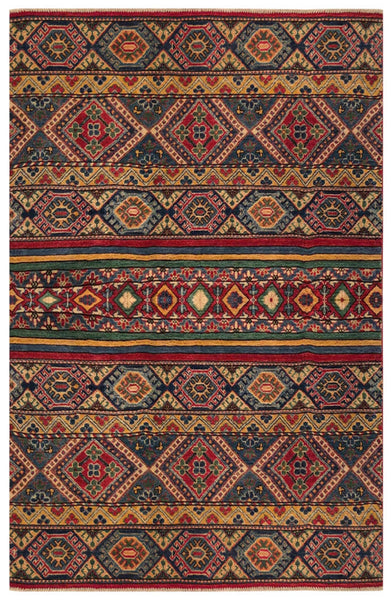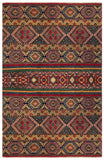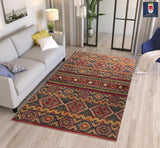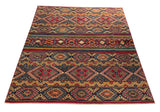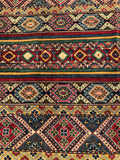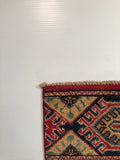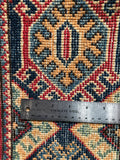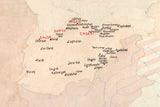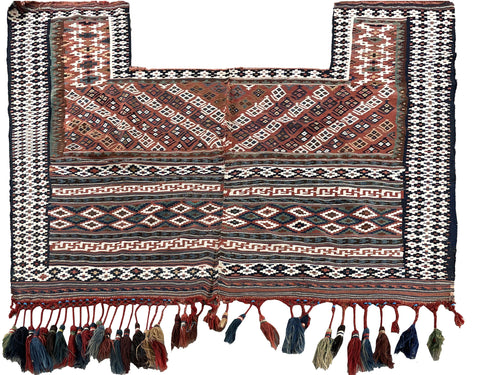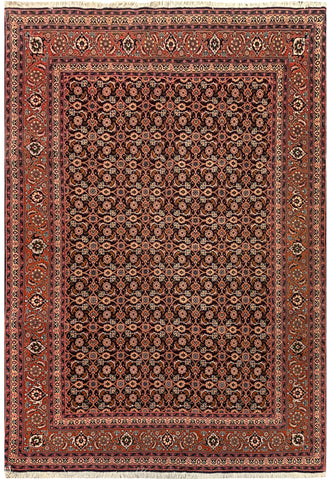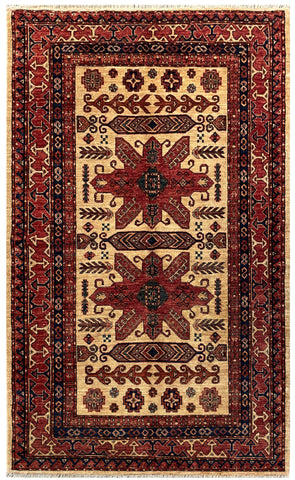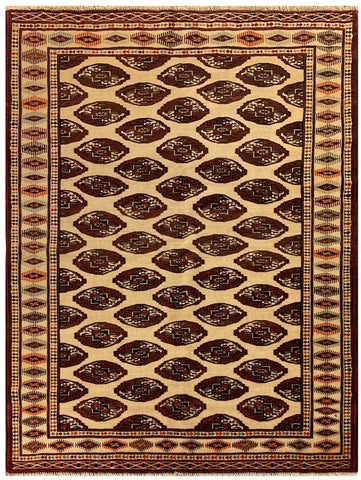23778- Kazak Afghan Hand-knotted Contemporary/ Nomadic/Tribal Carpet/Rug/ Size: 6'11" x 5'1"
Previous Product Next ProductBabak's Oriental Carpets
1 in stock
medium
Introduction:
After the Soviet invasion of 1980, many Afghan...
Introduction:
After the Soviet invasion of 1980, many Afghan refugees fled the war and resettled in Pakistan. This resettlement resulted in the revival of traditional patterns, especially Kazak motifs. The colours and the designs, however, evolved as new materials and resources became available. Before the resettlement, Afghan knotters only had access to: black, gray, white, navy blue, and cherry red dyes. After the resettlement, additional colors like phoenix fossil-gray, egg-shell ivory, jewel-toned teal, deep-indigo blue, and classic rusty-red started showing up in Kazak rugs.
Description:
Kazak pieces come in a wide variety of qualities and knot densities. Cotton is the foundation of these oriental beauties. Interestingly, the local cotton that is being used as the foundation, is gray, which gives a wool-like appearance to the fringes. Finer Kazak carpets come with double threaded warps and wefts; each set being constructed using different shades of cotton. The pile, on the other hand, is relatively short compared to other oriental carpets. This is due to the antique wash process, knotters put their newly finished carpets through. During this process the pile is cut short and the entire rug is stone washed, similar to stone washing process used for jeans and denims. As a result, Kazak rugs have a beautiful antique finish.
Price Range and Value:
Generally, Kazak pieces are in the same price range as Shirvans, Chobi Zieglers, and Khal Mohammads. Their larger pieces start from 10' in length, and 6' in width, for the price of $ 2000, and they go all the way to 12' in length, and 8' in width, for the price of $ 10000.
Note:
Kazak carpets feature distinct designs with geometric compositions and tribal characteristics. Common patterns include medallions, rosettes, diamonds, and crosses, as well as, representations of animals, birds, trees and humans. Similar to Shirvan pieces, while the design of some of Kazaks may resemble the North American rugs of the South Western United States, the construction techniques and the colors that are used vary considerably, creating a distinct difference between the two.
For more information, please call us at: +1 250 480 7114
Articles & Videos:
Wikipedia Entry (Article)
Carpet Production (Video)>
Documentary (Video)
Landscapes and Nature (Video)
Related Products
CAD $4,899.00 CAD $599.00
CAD $11,999.00 CAD $3,999.00
CAD $12,599.00 CAD $1,599.00
CAD $4,999.00 CAD $1,199.00
CAD $2,999.00 CAD $699.00
CAD $4,899.00 CAD $1,199.00
CAD $2,499.00 CAD $399.00
CAD $1,999.00 CAD $599.00


